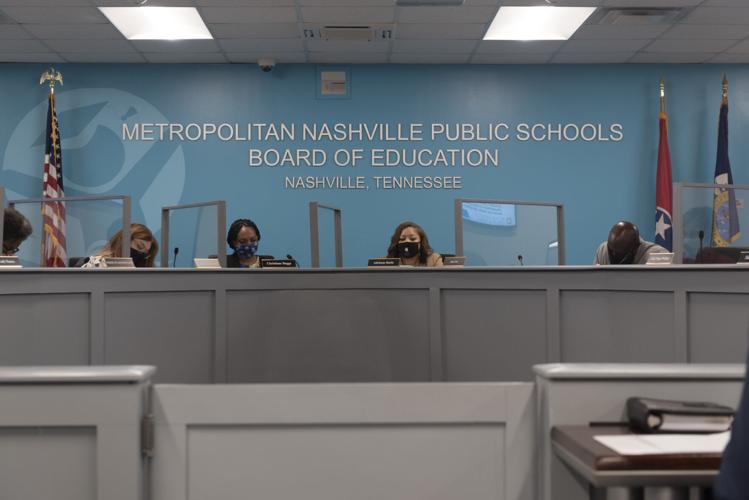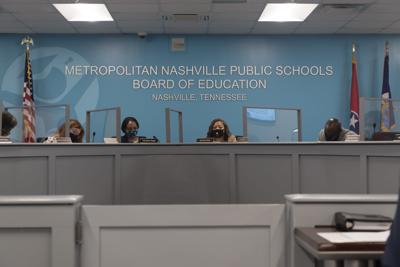This week’s Metro Nashville Public School Board meeting was another long one. The board covered a range of topics on Tuesday night, from academic and emotional support for students to masks and education-related happenings in the current legislative session.
In her report, director of schools Adrienne Battle mentioned the new Tennessee Investment in Student Achievement Act. The proposed new funding formula would change the way schools are funded in the state, and Battle is not entirely pleased with how it could affect MNPS. She noted that, per the state’s financial projections, Nashville students could be among the lowest in Tennessee in terms of per-pupil funding. Battle also expressed concern regarding the state’s definition of economically disadvantaged students, who are slated to get more funding under the TISA Act. She worries the metric doesn’t properly address Nashville-based families who could be struggling financially.

Dr. Adrienne Battle
“The [proposed] funding formula goes to great lengths to address rural poverty or challenges unique to those student populations or districts,” said Battle, “but doesn't doesn't do anything to address the higher cost of living in Nashville. And in fact, we get penalized severely for the growth in real estate property values and our sales tax.
“So in short, this may be an investment plan for some districts throughout Tennessee, but it represents a continued divestment by the state for Metro Nashville Public Schools, with added strings and red tape that won't necessarily result in better outcomes for our students,” she continued. “There's no legal or policy reason for this to pass as-is in the next few weeks, and I hope lawmakers will take the time, do their due diligence and get this right for all students, including those here in Nashville.”
District representatives also spoke about MNPS’ ReimaginED framework, which seeks to implement restorative justice practices through various methods — including peace centers for middle and high schoolers to help resolve conflict and implement social and emotional learning. The district has already implemented these methods in 11 middle schools and 10 high schools, and is hoping to add 38 more restorative practice assistants to cover all middle and high schools in the district. These programs are funded through COVID-19 relief money, and the district is considering how to sustain them once that money runs out.
Another district spokesperson addressed the Advancement Via Individual Determination, an MNPS system that prepares students for college and career success. While AVID is currently in 11 middle schools, the district is hoping to add the system to all middle schools by the 2023-2024 school year.
District 3 representative Emily Masters also revisited the board’s decision from the last meeting to remove Metro schools’ mask mandate after spring break. Masters made a motion to keep the original motion, with the added stipulation that the board continue to monitor CDC COVID-19 community levels and district COVID-19 data, review it at board meetings and have the option to make adjustments as necessary. The motion passed, though it doesn’t change much for students — they will still return from spring break without a mask mandate.
During the week of Feb. 28 through March 6, 40 students and 15 staff members reportedly tested positive for COVID-19.







